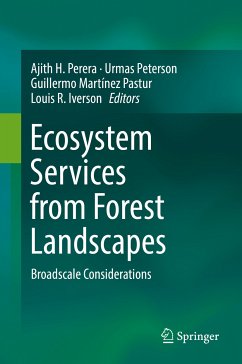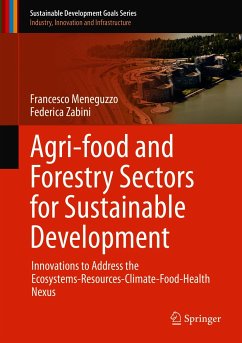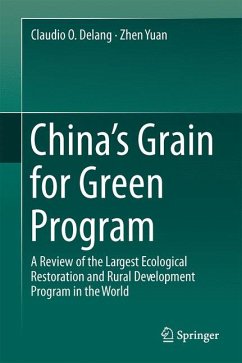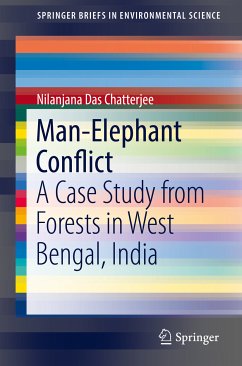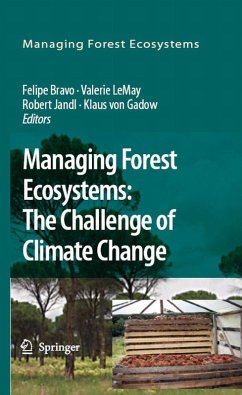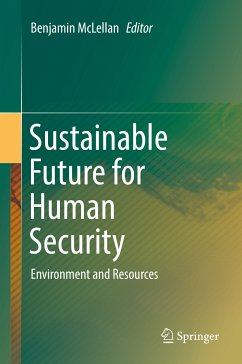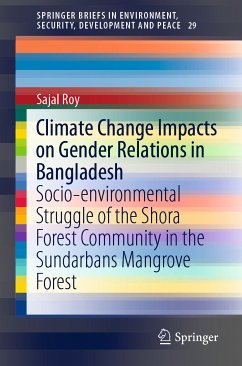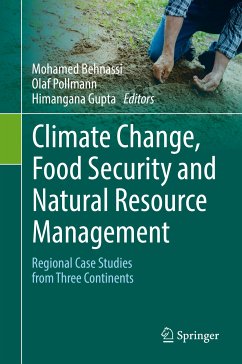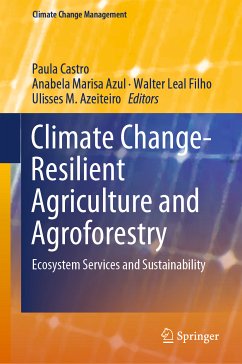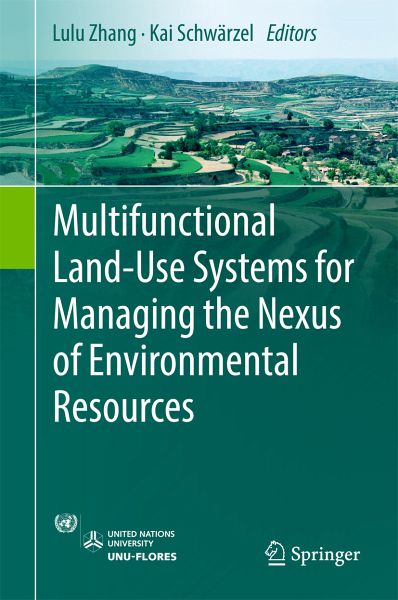
Multifunctional Land-Use Systems for Managing the Nexus of Environmental Resources (eBook, PDF)

PAYBACK Punkte
36 °P sammeln!
This book comprehensively describes the major ecosystem services in dryland environments that are provided by typical land use, including forestland, grassland and farmland, using the Loess Plateau, Northwest China as an example. It offers extensive information on land policy, implementation and scientific evidence, and discusses the restoration of the degraded Loess Plateau environment, which that brings new challenges in the sustainable use of natural resources, in particular soil and water. It presents a transdisciplinary and up-to-date understanding of interlinkages and competition between...
This book comprehensively describes the major ecosystem services in dryland environments that are provided by typical land use, including forestland, grassland and farmland, using the Loess Plateau, Northwest China as an example. It offers extensive information on land policy, implementation and scientific evidence, and discusses the restoration of the degraded Loess Plateau environment, which that brings new challenges in the sustainable use of natural resources, in particular soil and water. It presents a transdisciplinary and up-to-date understanding of interlinkages and competition between different ecosystem services and illustrates benefit sharing among different users and stakeholders, land- management practitioners and local governments. It is a major contribution to the on-going debate on future land-development strategies and identifies areas where there is a need for more research. This book is a valuable resource for students, scientists and policy makers.
Dieser Download kann aus rechtlichen Gründen nur mit Rechnungsadresse in A, B, BG, CY, CZ, D, DK, EW, E, FIN, F, GR, HR, H, IRL, I, LT, L, LR, M, NL, PL, P, R, S, SLO, SK ausgeliefert werden.



